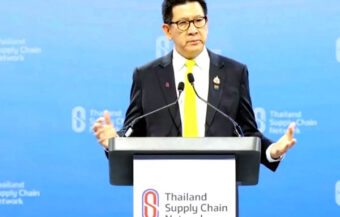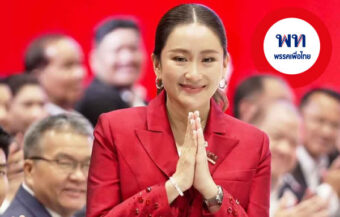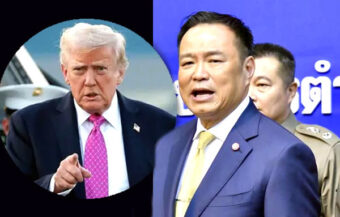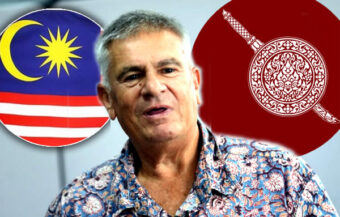Red Bull’s Yoovidhya family tops Thailand’s billionaire list for the second year with $44.5B, powered by explosive growth in China. Despite economic challenges, Thailand’s richest, including the Chearavanont brothers, see their fortunes rise on strong business and strategic expansion inside and outside the kingdom.
Despite Thailand’s economy hitting rough waters, Forbes’ latest billionaire list reveals 33 billionaires call the country home. The Chearavanont brothers dominate with a staggering $35.7 billion empire spanning Thailand, China, and Asia. Former Prime Minister Srettha Thavisin, ousted by the Constitutional Court in 2024, still holds a hefty $2.1 billion fortune tied to his real estate empire. But the real headline? Chalerm Yoovidhya. The Red Bull kingpin’s fortune has exploded to $44.5 billion, fueled by explosive growth in China. Red Bull’s dominance there is the powerhouse behind Thailand’s richest fortune.
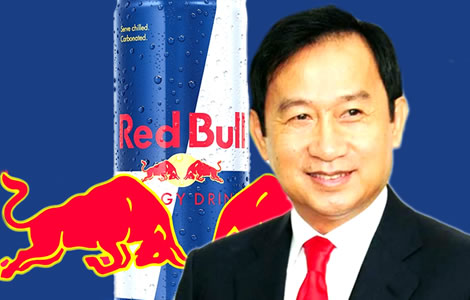
Forbes has unveiled its 2025 list of Thailand’s 50 richest individuals, with Chalerm Yoovidhya once again at the top. This is the second consecutive year he has held this position. His net worth has surged to an all-time high of $44.5 billion, or roughly ฿1.44 trillion baht. This figure not only signals his financial growth but also highlights the global success of Red Bull, the energy drink empire behind his fortune.
Despite this individual success, Thailand’s broader economy is experiencing challenges. Economic growth has slowed due to persistent trade tensions and ongoing political uncertainty. Moreover, the Thai stock market index has fallen by 14% year-over-year.
However, a stronger baht has somewhat offset this decline, providing some relief to investors. Consequently, the wealthiest Thais have still managed to grow their fortunes.
Combined net worth of Thailand’s top three richest rises over 11% thanks to key business leaders’ gains
In fact, the combined net worth of the top three richest individuals rose by over 11%, reaching $170.5 billion. This increase is largely due to gains by Chalerm Yoovidhya, the Chearavanont brothers and Sarath Ratanavadi. The Chearavanont brothers rank second, with $35.7 billion.
They lead the Charoen Pokphand Group, a giant in agriculture, retail and telecommunications. Sarath Ratanavadi, third on the list, controls Gulf Energy Development. His assets are valued at $12 billion, reflecting the growing importance of the energy and telecom sectors.
Charoen Sirivadhanabhakdi and his family come in fourth, holding $10.5 billion. They own Thai Beverage and significant real estate holdings. The Chirathivat family, in fifth place with $8.6 billion, runs the Central Group, which includes retail stores, shopping malls and hotels.
Other notable billionaires in the top ten include the Chaiyawan family ($4.2 billion), owners of Thai Life Insurance and Thai Credit Bank; Aiyawatt Srivaddhanaprabha and family ($3.5 billion) of King Power Group; Prasert Prasarttong-Osoth ($3.4 billion), head of BDMS hospital group; Sathien Setthaderm ($2.6 billion) of Carabao Group; and Pornthep Phornprapha and family ($2.2 billion) of Siam Motors.
Former Prime Minister Thaksin Shinawatra also appears on the list, ranked 11th with assets of $2.1 billion. Despite a list filled with influential figures, none match the meteoric rise of Chalerm Yoovidhya. His family’s wealth rests heavily on the Red Bull brand, which sold over 13 billion cans globally in 2024 alone.
Red Bull’s global dominance began with a Thai-Chinese salesman’s vision and creative marketing tactics
Red Bull’s global dominance, however, had humble beginnings. The story started in 1956 with Chalerm’s father, Chaliew Yoovidhya, a Thai-Chinese vitamin salesman. That year, Chaliew founded T.C. Pharmaceuticals. At the time, the company focused on medicines and vitamins, using creative advertising methods such as movie trucks and radio advertisements to build brand awareness.
Later, Chaliew expanded the product range to cosmetics under the “Tattoo” brand. But the pivotal moment came with the creation of Thailand’s first energy drink, “Theoplex-Desyrup,” sold under the Krating Daeng brand. Chaliew employed bold promotional strategies that directly engaged consumers, including free gifts, bottle-cap exchanges, and prize raffles. These efforts quickly earned Krating Daeng a devoted following among labourers, drivers and rural workers.
The brand’s international breakthrough came after Chaliew met Austrian entrepreneur Dietrich Mateschitz. Together, they developed Red Bull, an energy drink reformulated and rebranded for Western markets. Despite its global image, Red Bull’s roots remain deeply Thai, representing the innovative vision of the Yoovidhya family.
China leads as Red Bull’s biggest market following decades of strategic investment and expansion efforts
China has become Red Bull’s largest and most lucrative market, a fact many might not realise.
Chaliew recognised China’s potential long before most global firms did. In 1993, he helped establish Hainan Red Bull Drink Co., Ltd., marking the brand’s initial entry into China. Known locally as “Hong Niu,” Red Bull now leads China’s energy drink market, which is valued at over 135 billion yuan, or more than ฿670 billion.
The TCP Group, controlled by Chalerm and his family, manages Red Bull’s operations across Thailand and much of Asia. Chalerm’s son, Sarawut Yoovidhya, currently serves as CEO. In 2020, the TCP Group announced a significant expansion plan in China, investing over 1 billion yuan to boost production and launch new products. This investment has already yielded results.
In 2024, a new factory opened in Neijiang City, Sichuan Province, with an annual production capacity of 1.44 billion cans. A second factory began production in early 2025 in Nanning, Guangxi, representing a 1.3 billion yuan investment. Red Bull’s offerings in China include two main formulas: Hong Niu Taurine Drink, which contains vitamins and taurine, and Hong Niu Vitamin Flavour Drink, featuring a milder traditional taste.
Red Bull integrates into China’s digital economy while expanding product lines and targeting new consumers
Red Bull has woven itself into China’s rapidly growing digital economy. Its consumer base includes delivery drivers, livestreamers, app-based workers, and young professionals. Simultaneously, China’s growing passion for sports has further fueled energy drink demand. Consequently, Red Bull’s growth aligns with broader social trends.
Its success results not only from product innovation but also from sharp branding, timely expansion, and cultural resonance.
Back in Thailand, the TCP Group continues to manage the Red Bull brand domestically while investing in new beverages and health products rooted in the original Krating Daeng legacy.
According to Sarawut Yoovidhya, Red Bull’s expansion in China is no overnight phenomenon. Instead, it reflects decades of strategic effort and gradual growth.
From the first factory in Hainan to the modern production bases in Sichuan and Guangxi, the company’s Chinese footprint has grown steadily and deliberately.
TCP Group plans innovative products tied to esports and fitness to attract younger, digital-savvy consumers
Sarawut also revealed plans to launch innovative products aimed at younger consumers and the digital lifestyle. These new items will feature functional ingredients, fresh packaging designs, and stronger connections to esports and fitness trends.
Throughout this remarkable journey, the Yoovidhya family has maintained a relatively low public profile. Chalerm rarely grants interviews, yet his name leads Thailand’s wealth rankings by a wide margin. His fortune of $44.5 billion puts him nearly $9 billion ahead of the Chearavanont brothers. This gap has widened thanks to Red Bull’s booming Asian sales.
Other sectors represented on Forbes’ 2025 list include insurance, real estate, banking, logistics, and healthcare. For instance, Santi Bhirombhakdi, heir to the Singha Corporation, ranks 15th with $1.75 billion. William Heinecke, founder of Minor Group, holds $1.3 billion, while Supaluck Umpujh, behind The Mall Group, is valued at $1.15 billion.
Rising wealth threshold reflects growing concentration of fortunes amid economic challenges in Thailand
At the lower end of the list, Phongsak Thammathataree secures the 50th spot with $420 million. Reaching this threshold now requires more wealth than in previous years, illustrating the increasing concentration of wealth in Thailand.
In summary, despite economic uncertainties and slower growth, Thailand’s richest have demonstrated resilience. Strategic expansion—especially into the vast Chinese market—has helped key figures increase their wealth amid challenges.
Ex-officials and civilians face an array of serious criminal charges over Red Bull heir scandal, says Attorney General
CP boss says Thailand must engage the US and become Southeast Asia’s top data centre with cheap energy
Central secures Saudi wealth fund as 40% minority partner in luxury Selfridges department store chain
Chalerm Yoovidhya’s story is perhaps the clearest example of this success. From the son of a vitamin salesman to the face of a global empire, his journey embodies vision, perseverance and generational strategy.
Red Bull has transcended its status as a mere beverage. It stands as a powerful symbol of Thai entrepreneurship on the global stage.
Join the Thai News forum, follow Thai Examiner on Facebook here
Receive all our stories as they come out on Telegram here
Follow Thai Examiner here
Further reading:
CP boss says Thailand must engage US and become Southeast Asia’s top data centre with cheap energy
Thailand’s obscure negotiation strategy with United States an outlier as PM promises a ‘secret deal’
Thaksin does not rule out joining talks in US as Thai team finalises plans. They fly out on Thursday
Trump’s remaking of World trade, if it works, will force Thailand to decide between the US and China

